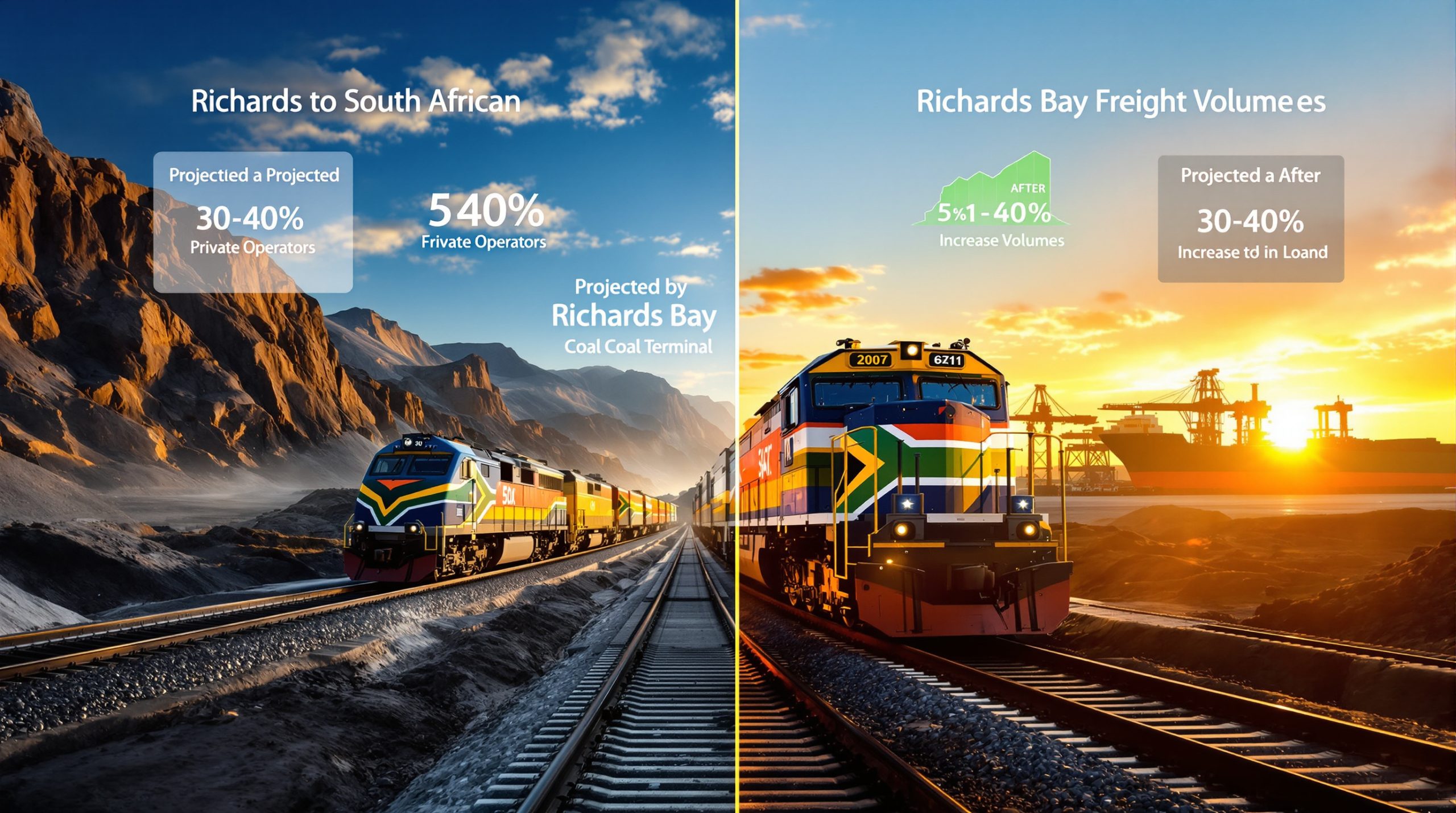Indonesia's Nickel Mining Quotas: Balancing Stability and Regulation
Indonesia's nickel mining sector stands at a crossroads as the government contemplates reverting to shorter quota validity periods, creating tension between regulatory control and industry stability. This proposed change has sparked significant debate among stakeholders across the nickel value chain, highlighting the delicate balance between governmental oversight and creating an environment conducive to investment and growth in Indonesia's nickel miners and three-year quota validity.
What is the Current Quota System for Indonesia's Nickel Miners?
Indonesia's nickel mining industry currently operates under a three-year quota validity system implemented in 2023. This framework, known as RKAB (Rencana Kerja dan Anggaran Biaya or Work Plan and Budget), replaced the previous one-year validity period to provide greater operational certainty for mining companies.
Under this system, nickel producers receive production quotas that remain valid for three years, significantly reducing administrative burden while offering medium-term planning stability. However, the system maintains flexibility by allowing companies to propose annual revisions to their allocations as market conditions evolve.
The extension to three-year validity periods was specifically designed to streamline the approval process for both government authorities and mining companies. This reform acknowledged the complex planning horizons required for large-scale mining operations and the need for regulatory certainty to support investment decisions.
"The three-year RKAB system was implemented as a direct response to industry concerns about excessive bureaucracy hampering operational efficiency," according to mining sector analysts familiar with the 2023 reforms.
The current framework offers several key advantages:
- Reduced administrative overhead for both regulators and companies
- Enhanced operational planning capacity for mining enterprises
- Greater investor confidence through extended regulatory certainty
- Maintained flexibility through annual revision options
- Streamlined compliance processes across thousands of mining operations
Key Components of the RKAB System
The RKAB framework integrates production planning with budgetary approvals, creating a comprehensive governance system for Indonesia's mining sector. Mining companies must submit detailed operational plans including:
- Production volume targets
- Environmental management protocols
- Community development commitments
- Safety and workforce planning
- Financial projections and investment timelines
Despite the three-year validity, government authorities maintain oversight through regular reporting requirements and compliance inspections, balancing operational freedom with regulatory accountability. This approach aligns with modern mining permitting guide practices that emphasize both efficiency and responsible oversight.
Why Does the Indonesian Government Want to Change the Quota Period?
The Indonesian Mining Ministry recently announced plans to reduce the quota validity period from three years back to one year. This proposal reflects the government's strategic priorities in managing its vast mineral resources, particularly nickel, which has become increasingly critical to global supply chains.
According to official statements from the Mining Ministry, the primary motivation behind this potential change is to "maintain price stability and mitigate the impact of price drops on government revenue." This reflects Indonesia's increasing awareness of its market power as a dominant global nickel supplier and its desire to leverage this position more effectively.
The government's rationale encompasses several key objectives:
Enhanced Supply Management
Shorter quota periods would give authorities more frequent opportunities to adjust national production volumes in response to global market conditions. This could potentially allow Indonesia to function somewhat like a central producer in commodity markets, making strategic adjustments to support price stability.
Revenue Protection Mechanisms
With nickel prices subject to significant volatility, annual quota reviews would provide a mechanism to protect government revenues during market downturns. By potentially restricting supply during periods of weak demand, authorities hope to create a price floor that safeguards both mining company profits and associated tax revenues.
Environmental Oversight Reinforcement
More frequent quota reviews align with Indonesia's stated commitment to strengthening environmental standards across its mining sector. Annual approvals would create regular checkpoints for assessing compliance with environmental regulations and implementing corrective measures where necessary.
Strategic Resource Management
As Indonesia pursues ambitious goals to move up the value chain in nickel processing, shorter quota periods could help align raw material production with downstream industrial development targets. This coordinated approach seeks to maximize the economic benefits of the country's nickel reserves.
"The proposed plan is designed to maintain price stability and mitigate the impact of price drops on government revenue," according to an official statement from the Indonesian Mining Ministry.
The ministry's push for greater control reflects a growing trend among resource-rich nations to take a more active role in managing their commodity exports, especially for materials like nickel that are essential for emerging technologies and energy transition. This approach is part of broader mining industry evolution trends worldwide.
How Are Nickel Miners Responding to the Proposed Changes?
The Association of Indonesia Nickel Miners (APNI) has voiced strong opposition to the proposed reduction in quota validity periods. This industry body, representing thousands of mining operations across the archipelago, argues that returning to annual quotas would undermine the very benefits that the three-year system was designed to deliver.
APNI's concerns focus on several critical issues that they believe would negatively impact both individual companies and Indonesia's broader mining ecosystem:
Bureaucratic Bottlenecks
With thousands of miners requiring new quota approvals annually rather than every three years, APNI warns of significant administrative congestion. This could potentially create approval backlogs, delay operational planning, and disrupt production schedules across the sector.
"The government needs to strengthen internal evaluation and oversight capacity, not lengthen the bureaucratic chain with shorter licensing periods," according to an official APNI statement.
Investment Uncertainty
Medium-term certainty is particularly crucial for mining operations, which typically require substantial capital investments with multi-year payback periods. Industry representatives argue that reducing quota validity to annual cycles would introduce unnecessary uncertainty into investment decisions, potentially chilling capital deployment.
Operational Continuity Risks
Mining companies structure their operational plans around production targets that often span several years. Annual quota approvals could introduce disruptive uncertainties into these planning cycles, potentially affecting everything from equipment procurement to workforce management.
Administrative Burden Escalation
The paperwork and compliance costs associated with annual quota applications would fall most heavily on smaller mining operations with limited administrative resources. This could inadvertently favor larger companies better equipped to navigate complex regulatory processes, potentially reducing competition in the sector.
APNI has emphasized the need for continued dialogue with government authorities to find a balanced approach that addresses legitimate regulatory concerns without compromising sector stability. The association has suggested alternative measures, such as enhanced interim reporting requirements, that could achieve similar oversight objectives without reverting to annual quotas.
What Are the Implications for Indonesia's Nickel Industry?
Indonesia's nickel sector has emerged as a cornerstone of the country's economic development strategy, particularly as global demand for this critical metal continues to grow. The implications of quota policy changes must be understood within this broader strategic context.
Strategic Importance of Nickel to Indonesia
Indonesia possesses among the world's largest nickel reserves, with production capabilities that have positioned it as a dominant global supplier. While exact production figures vary by source, the country's output represents a significant percentage of global supply, particularly for laterite ores suitable for both traditional stainless steel production and emerging battery applications.
The sector's importance extends beyond raw material exports to include:
- Domestic industrialization catalyst – Driving development of processing facilities
- Employment generation – Creating jobs in both mining and refining
- Technology transfer – Attracting advanced processing technologies
- Export diversification – Reducing dependence on traditional commodities
- Revenue generation – Providing significant tax and royalty income
Potential Market Impacts of Quota Changes
The shift to shorter quota periods could have several significant impacts on Indonesia's nickel industry dynamics:
Supply Reliability Concerns
More frequent quota adjustments introduce potential volatility into production planning, which could affect Indonesia's reputation as a reliable supplier. This is particularly significant for downstream industries with precise input requirements, such as stainless steel manufacturers and electric vehicle battery producers, including projects like the Tamarack nickel project in North America that monitor global supply trends.
Investment Decision Implications
The mining sector operates on extended timeframes, with major investments typically requiring several years to generate returns. Regulatory uncertainty around production quotas could affect capital allocation decisions, potentially redirecting investments to jurisdictions offering greater long-term stability.
Competitive Position Challenges
Indonesia competes with other nickel-producing nations, including the Philippines, Russia, and New Caledonia. Administrative burdens that increase compliance costs or operational uncertainty could impact Indonesia's relative attractiveness compared to these alternative sources.
Price Effects and Market Dynamics
While shorter quota periods might give the government more tools to influence nickel prices through supply management, such interventions also carry risks. Unpredictable policy shifts could trigger price volatility that ultimately harms both producers and consumers in the nickel value chain.
The Morowali Industrial Park (IMIP) in Central Sulawesi illustrates the strategic importance of policy stability for Indonesia's nickel sector. This industrial complex has become a critical hub for nickel processing, hosting smelters and related facilities that convert raw ore into higher-value products. Regulatory uncertainty affecting raw material supply could impact the operational efficiency of such downstream facilities.
How Does This Fit Within Indonesia's Broader Mining Regulations?
The quota validity debate occurs within a complex and evolving regulatory landscape for Indonesia's mining sector. Over the past decade, the country has implemented significant policy shifts aimed at maximizing domestic benefits from its mineral resources, with nickel frequently at the center of these reforms.
Key Regulatory Developments
Indonesia's approach to nickel regulation has been characterized by increasingly assertive resource nationalism, reflecting a determination to capture more value domestically rather than exporting unprocessed raw materials. Key policy developments in this journey include:
Export Restrictions and Processing Requirements
In January 2020, Indonesia implemented a complete ban on nickel ore exports, accelerating a policy direction first established in 2014. This decisive move was designed to force investment in domestic processing facilities, effectively requiring miners to either develop their own smelting capabilities or partner with processing companies.
Foreign Investment Frameworks
Indonesia's mining regulations include provisions requiring foreign mining companies to progressively divest majority stakes to Indonesian entities. These ownership requirements aim to increase domestic participation in the mining sector while still attracting the international expertise and capital needed for development.
Environmental Standards Evolution
Environmental regulations governing the nickel sector have become increasingly stringent, reflecting growing awareness of the ecological impacts of both mining and processing operations. This includes more comprehensive requirements for environmental impact assessments, waste management plans, and mine reclamation innovation.
Downstream Development Incentives
The regulatory framework includes various incentives designed to encourage investment in downstream processing, including tax holidays, duty exemptions, and accelerated depreciation allowances for qualifying projects. These incentives complement the export ban in pushing the sector up the value chain.
Regulatory Coherence Challenges
The proposed quota validity changes highlight ongoing challenges in maintaining regulatory coherence across Indonesia's mining sector. Industry stakeholders have noted tensions between different policy objectives:
- Investment attraction vs. short-term control – Balancing the need for investor certainty with flexibility in resource management
- Administrative efficiency vs. oversight – Finding the right balance between streamlined processes and effective regulation
- National interests vs. international competitiveness – Aligning domestic priorities with the realities of global markets
The quota debate also reflects broader questions about regulatory predictability in Indonesia's resources sector, with companies seeking clear, stable frameworks that enable long-term planning while allowing the government to achieve legitimate policy objectives.
What Environmental Concerns Affect Indonesia's Nickel Sector?
Alongside the quota validity debate, Indonesia's nickel industry faces increasing scrutiny over its environmental practices. The government is preparing to impose sanctions on companies for violations at key production sites, highlighting the growing importance of environmental considerations in nickel sector governance.
Environmental Challenges at Nickel Production Facilities
The rapid expansion of Indonesia's nickel industry, particularly in processing and refining, has created significant environmental challenges. The Mining Ministry has identified several critical issues at major production centers, including the Morowali Industrial Park:
Wastewater Management Deficiencies
Investigations have revealed inadequate wastewater treatment systems at numerous processing facilities. This presents risks of contamination to local water sources, potentially affecting both aquatic ecosystems and communities that depend on these water resources.
Air Quality Impacts
Nickel smelting operations generate significant air emissions, including sulfur dioxide and particulate matter. Monitoring has identified instances where emissions exceed permitted levels, creating air quality concerns for workers and surrounding communities.
Improper Tailings Disposal
The use of unlicensed tailing disposal areas has emerged as a particular concern at some nickel operations. Improper management of these waste materials can lead to soil contamination, water pollution, and potential structural failures with catastrophic environmental consequences.
Habitat Disruption and Biodiversity Impacts
Mining operations in biodiversity-rich regions of Indonesia have raised concerns about habitat fragmentation and species displacement. The cumulative impact of multiple mining operations can significantly affect local ecosystems if not properly managed.
Government Response to Environmental Issues
The Indonesian government has signaled a strengthening commitment to environmental enforcement in the nickel sector, balancing economic development priorities with environmental protection:
Regulatory Actions at Morowali
The Ministry of Environment is preparing sanctions for environmental violations at the Morowali Industrial Park, demonstrating a willingness to hold even flagship industrial facilities accountable for compliance failures.
Enhanced Monitoring Systems
Authorities are implementing more rigorous environmental monitoring requirements, including real-time emissions tracking at larger facilities and more frequent inspections of waste management infrastructure.
Compliance Directives and Penalties
Companies found in violation of environmental standards face a range of potential consequences, from operational restrictions and remediation requirements to financial penalties and, in extreme cases, license revocation.
Balancing Development and Sustainability
The government's approach reflects a growing recognition that long-term economic benefits from the nickel sector depend on environmentally sustainable practices. This includes efforts to encourage adoption of cleaner technologies and more efficient resource use.
"Environmental compliance is non-negotiable for operations at industrial parks like IMIP," according to environmental enforcement officials. "The sanctions being prepared reflect our commitment to sustainable development principles."
The environmental challenges facing Indonesia's nickel sector illustrate the complex trade-offs involved in resource-led development. While the industry generates significant economic benefits, ensuring these come without unacceptable environmental costs remains an ongoing challenge for both regulators and companies.
How Might the Quota System Evolve?
With the mining ministry acknowledging that details of the proposed changes are "still being formulated," there remains considerable uncertainty about the final form of any quota system modifications. This fluid situation creates both challenges and opportunities for constructive engagement between industry and government stakeholders.
Potential Compromise Solutions
Several alternative approaches could potentially address government objectives while mitigating industry concerns about reverting entirely to annual quotas:
Hybrid Approach
A hybrid system could maintain the three-year quota framework while implementing more frequent review mechanisms for specific aspects of mining operations. This might include annual updates on environmental compliance or production adjustments within pre-approved ranges.
Graduated System
Different validity periods could be established based on factors such as company size, compliance history, or project maturity. For example, operators with excellent compliance records might retain three-year quotas, while those with previous violations could face more frequent reviews.
Conditional Extensions
The regulatory framework could establish three-year quotas as a baseline, with validity conditional on meeting specific performance criteria. Companies failing to meet these standards could face accelerated quota reviews, creating incentives for maintaining high operational standards.
Enhanced Reporting with Maintained Validity
Three-year quotas could be preserved while implementing more comprehensive interim reporting requirements. This would give authorities greater visibility into ongoing operations without creating the administrative burden of full quota reapplications.
Stakeholder Engagement Process
Deputy Mining Minister Yuliot Tanjung's acknowledgment that policy details are still under development suggests opportunities for continued dialogue among stakeholders:
- Industry consultations to identify practical implementation challenges
- Technical working groups to develop compromise solutions
- Phased implementation to allow for system adjustments
- Pilot programs to test alternative approaches
This collaborative approach could potentially yield a regulatory framework that balances legitimate government objectives around supply management and environmental oversight with industry needs for operational stability and administrative efficiency.
Regulatory Design Principles
Effective evolution of the quota system will likely depend on adherence to several key regulatory design principles:
- Predictability – Clear frameworks that enable confident business planning
- Proportionality – Regulatory burdens commensurate with environmental and economic risks
- Transparency – Open processes for quota allocation and modification
- Efficiency – Streamlined administrative procedures that minimize compliance costs
- Adaptability – Mechanisms to respond to changing market conditions without creating uncertainty
By focusing on these principles, Indonesian authorities have an opportunity to develop a quota system that strengthens governance while supporting the sector's continued growth and development.
What Does This Mean for Global Nickel Markets?
As one of the world's largest nickel producers, regulatory changes in Indonesia have significant implications for global supply chains. The potential shift to shorter quota validity periods introduces new variables into an already complex market environment.
According to Reuters reports, Indonesia's nickel miners have been actively lobbying the government to maintain the current three-year system. Their concerns about market stability reflect the broader implications of this policy shift for global nickel supply.
Supply Security Considerations
Indonesia's dominant position in global nickel supply means that any regulatory changes affecting production volumes or reliability create ripple effects throughout the value chain:
- Just-in-time manufacturing impacts – Industries dependent on consistent nickel supplies may need to reconsider inventory management practices
- Contract security questions – Buyers may seek additional
Ready to Capitalise on the Next Major Mineral Discovery?
Stay ahead of the market with Discovery Alert's proprietary Discovery IQ model, delivering real-time alerts on significant ASX mineral discoveries and transforming complex data into actionable investment insights. Explore how historic discoveries have generated substantial returns by visiting Discovery Alert's dedicated discoveries page and begin your 30-day free trial today.




